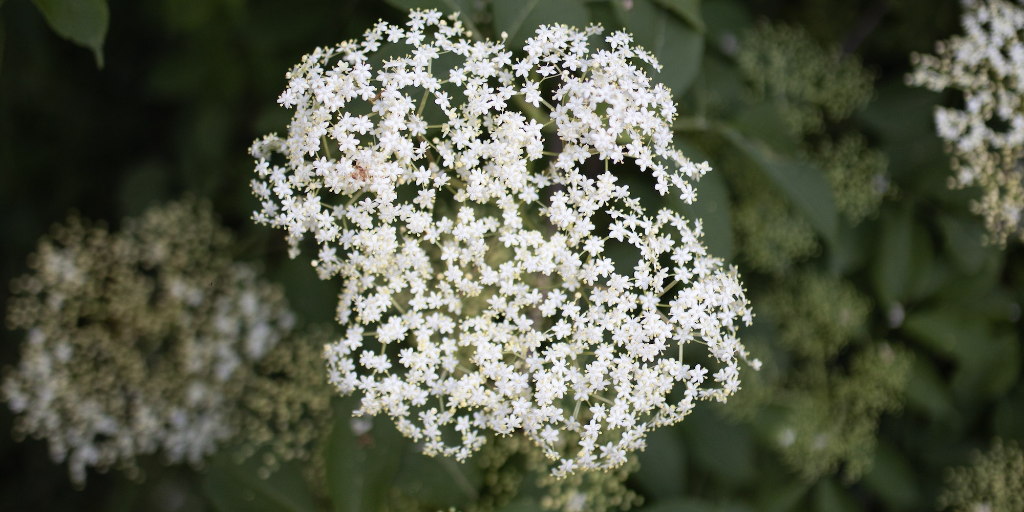 Elderflower champagne ingredients
Elderflower champagne ingredients
In late May the elderflowers begin to burst into fragrant life, they don't hang around for long so be sure to set aside the time to harvest them for making your own elderflower champagne. It is a beautifully delicate, naturally fermented, sparkling wine that uses nature's larder - foraged elderflower heads. Elderflowers can be spotted growing wild in hedgerows in the UK in May and June.
It takes a little time to brew and is definitely worth it!
They are a wonderful free ingredient but remember when foraging not to completely strip the Elder trees as it will impact on future years' growth so leave some flower heads behind for the wildlife to enjoy.
There is nothing more summery than a chilled glass of fizzy elderflower champagne in the sunshine! This is best drunk within 3 months of bottling.
Here is our own tried and tested recipe:
Ingredients:
- 8 large elderflower heads
- 2 litres of boiling water
- 3 litres of cold water
- 800g - 1kg of white caster sugar
- 5 unwaxed lemons
- Optional 5g Champagne yeast
Method:
- Pick the elderflowers and shake off or brush off any bugs - do not wash them as it is the natural yeast on the flowers that will aid fermentation and make the drink bubbly.
- Put the sugar into a bucket and pour the boiling water over. Stir until all sugar is disolved, then add the cold water and stir in. Leave to completely cool.
- Zest and juice the lemons and add to the bucket along with the elderflower heads.
- Give the bucket a quick stir and loosely cover with a clean muslin. Leave for 3 days.
- If bubbles have started forming on the top of the liquid then fermentation has started - all you need to do is leave it for another 3 days. If there are no bubbles after the first 3 days add a pinch of champagne yeast to give it a boost and then leave for another 3-6 days to ferment.
- Strain the liquid through a clean muslin and then decant into sterilised bottles - swing or screw top glass bottles are required as the liquid can get quite explosive!
- It is ready to enjoy within a week and we found keeping them in the fridge helps to slow down the fermentation and avoid them getting too fizzy!
 Elder tree in bloom with elderflowers
Elder tree in bloom with elderflowers
Take a look at our other elderflower recipes here>



